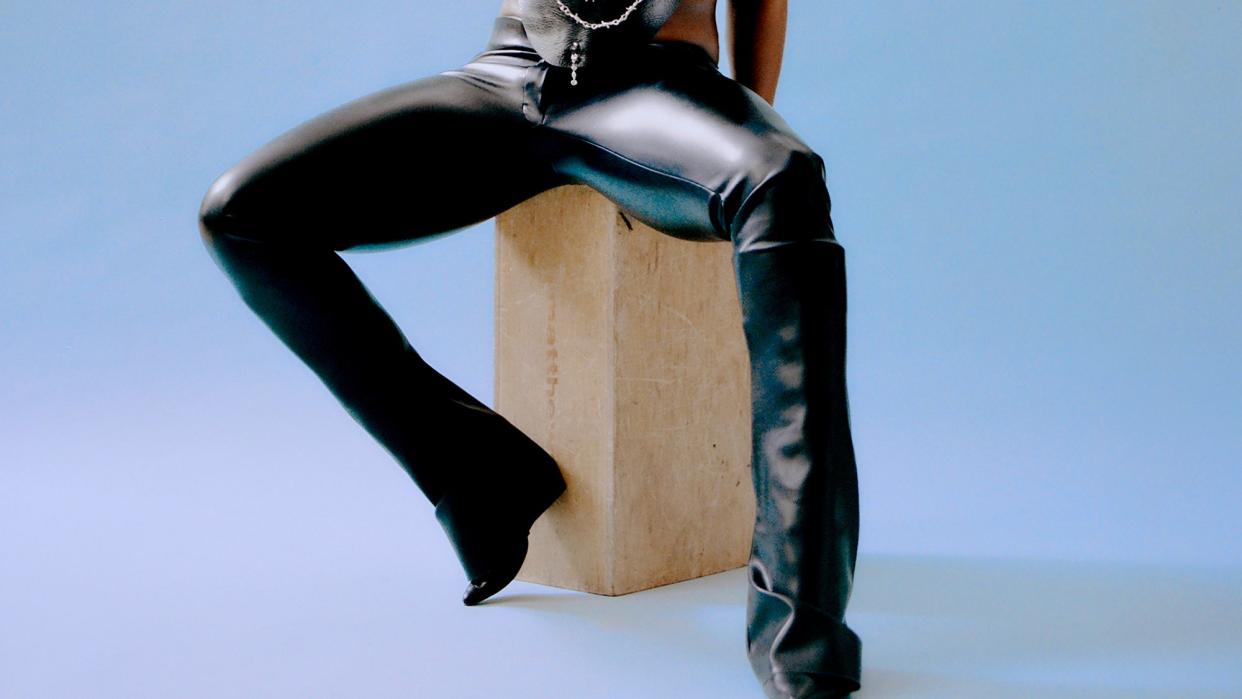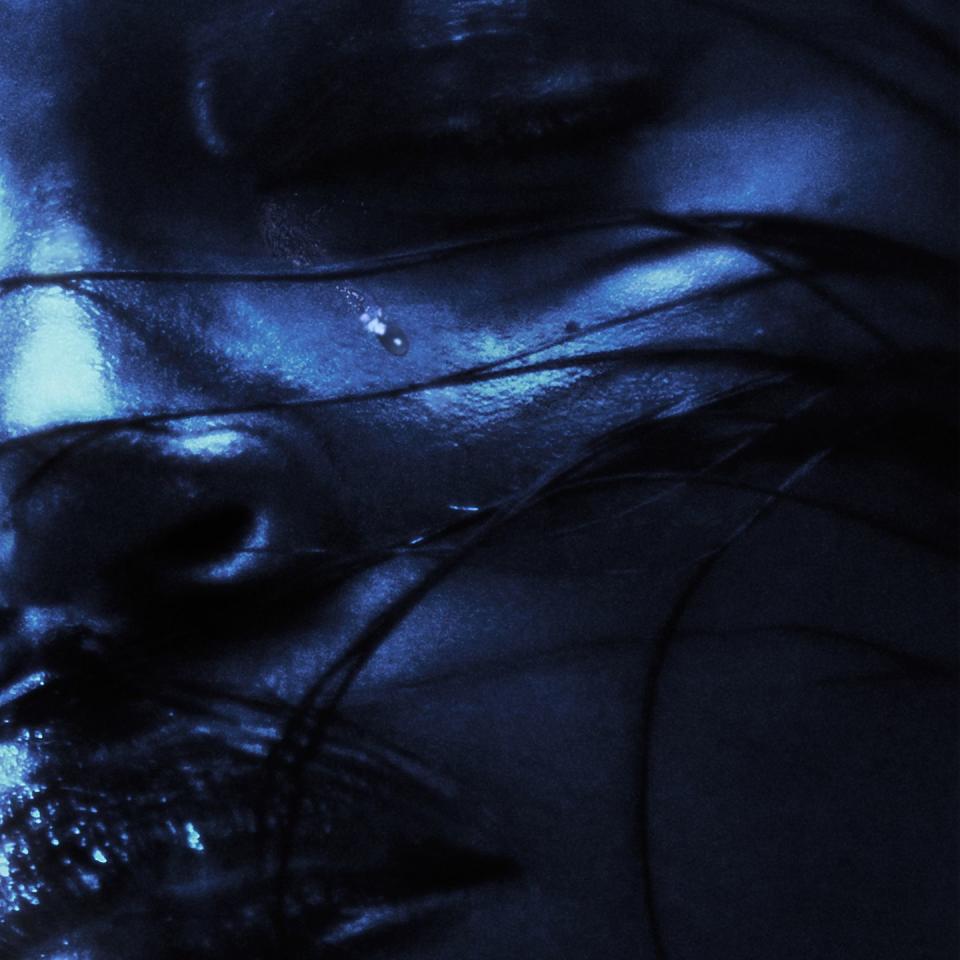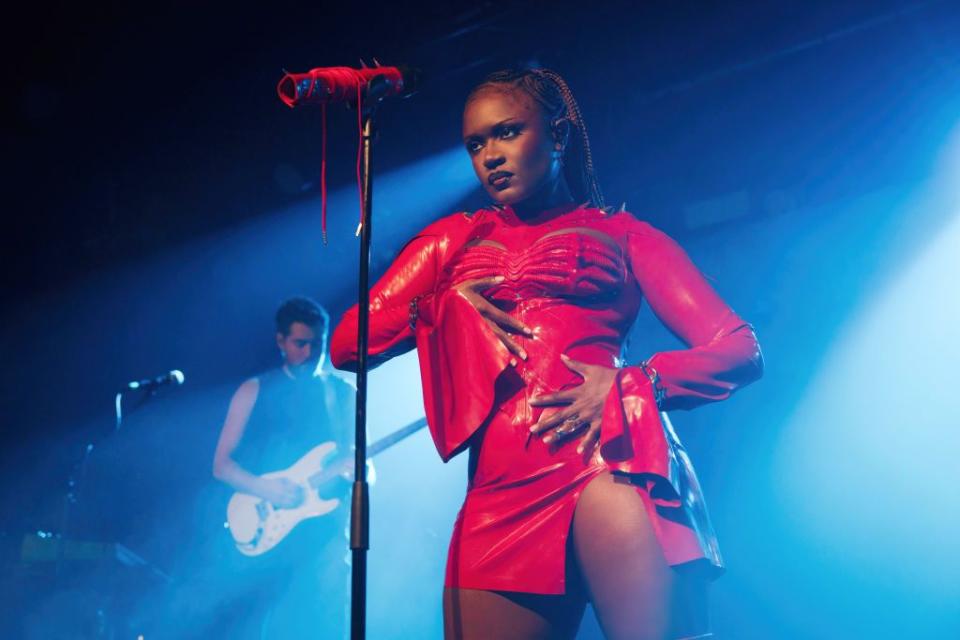Amaarae Won Over Sabrina Carpenter and Childish Gambino. The Rest of the World Is Next.

Amaarae had to hear it from Sabrina Carpenter herself: Why did the Billboard chart-topping pop star just invite her to open for her arena tour? The Ghanaian-American musician had to confirm with Carpenter when she saw her at haute couture week in Paris last month.
“Was it some cool tastemaker person on your team that forced you to do this?” Amaarae remembers asking the “Espresso” singer. “And she goes, ‘My best friend put me on your album last year. And it was one of our most played. … I genuinely asked for you to my management.’”
Amaarae was impressed, but still skeptical. Wasn’t Carpenter worried about their different audiences? She’s got mainstream pop hits and has opened for Taylor Swift, while Amaarae’s work leans more eccentric and alternative, and is inspired by her West African roots. But Carpenter welcomed the contrast.
“She was like, ‘I think it’s going to be so cool that we’re so different. You’re actually going to bring something new to my audience that I think they need—an excitement and an edge,’” Amaarae continues, speaking on Zoom from the French capital. “And I was like, ‘You’re crazy, but I think you’re also a genius. This is a very radical choice.’”
That pretty much sums up Amaarae’s rapid rise and growing influence, especially over the last couple of years. Even though the artist, born Ama Serwah Genfi, came onto the scene in in 2017 and released her debut album, The Angel You Don’t Know, in 2020, things really started picking up the following year, when Kali Uchis hopped on a remix of her track, “Sad Girlz Love Money,” which went viral on TikTok. When she released her critically acclaimed album, Fountain Baby, in 2023, she proved she wasn’t just a fleeting online sensation; she’s one of the most exciting new artists in music.
Born in New York and raised in Atlanta, New Jersey, and then Accra, Ghana, Amaarae’s style can be considered a mix of techno, dance, hip-hop, Afropop, R&B, and alternative, tied together with her signature squeaky vocal. She’s described her style as Afrofuturistic, and was heavily inspired by Kelis, Britney Spears, and Janet Jackson. (“Janet always has a record that I can reference and be like, this is our starting point.”) It’s no wonder that Fountain Baby landed on many best-of-year lists, garnered 1 billion global streams, and catapulted Amaarae to a new level of fame. Now she’s not only opening for Carpenter’s tour, but also Childish Gambino’s, alongside Willow Smith.
On Friday, on the heels of headlining her first tour, Amaarae released roses are red, tears are blue — A Fountain Baby Extended Play, a seven-track extension of last year’s album. She brings more of that mystifying soundscape, the dance beats and sensuality, at times even mixed with gospel elements.
“I didn’t take the music as seriously as I did with Fountain Baby, where it was like, ‘We have to make this perfect, amazing album,’” she says. “I was like, ‘Bro, let’s just have a good time and let’s give it to the people.’”
Here, Amaarae talks to ELLE.com about creating her new EP, what Fountain Baby’s success means to her, and what to expect from her onstage.
What prompted the Fountain Baby Extended Play?
It was supposed to be two remixes and one new song. And I was just in a creative bag and I was making so much music. I thought, the summer is coming up. Do I really just want to leave my fans high and dry and just give them one whack-ass song? So as I kept making songs—I just felt like I have something to say for the summer. I know people are still playing Fountain Baby, but I think it would be cool to attach this EP so they can go and listen to whole new music and still be reintroduced to the album. I had been through a lot in the past year, from my romantic life to my personal life, and I just wanted to talk about it. And I couldn’t do that in just one or two songs. I decided to really tell a story and give that story to my fans.

Do you picture this as a continuation of Fountain Baby, or do you feel like it’s a new chapter?
It’s the ending of the Fountain Baby chapter, for sure.
It’s tying up the bow nice, tight, and pretty, and just saying that on Fountain Baby, you got one personality that was going through all these shifts in their life and was really steadfast in their confidence. It was just in a very crazy time. But that time was about fun and excitement. Now things have mellowed out a bit. I’ve had my heart broken, and I’ve also been through a lot more in life, and this is just a bit more of a grounded finale...things just feel a bit more calm. It’s just ending the Fountain Baby chapter and saying, “Hey guys, I’ve grown, I’ve matured, and [I’m] onto the next thing.”
In your song “THUG (Truly Humble Under God)” you wrote the lyrics, “I don’t fall under pressure, I don’t fall under pain.” Could you tell me a little bit more about writing that?
It really is personal. And I was going through so much at the time, and I needed to give myself a message to say, “Hey, pick yourself up, because it’s not all ending.” The producer that I made it with, I’ve known him since I was 15 years old. I remember him coming into the session and he was like, “I’ve never really heard you make something that’s almost gospel-esque and talk about your personal experiences, and if you have a sadness, really express that. I think you should try. I feel like you would be great at it.” He played me some songs from other artists, and then he just started to play the chords, and I wrote the song in 15 minutes.
I think that he pulled that out of me. But “THUG” was a very personal one for me, and I also named it after Young Thug, who’s one of my favorite artists. I know he’s going through a tough time with being in jail right now. I really hope he hears the song and feels uplifted by it.
But, yes, I love the record. I didn’t like it at first, but coming to it later after the boys did all the production, I was like, wow, this is a really profound and special song, and I’m proud of myself for writing that.
And then you close with a remix of “Disguise.” Why was that the Fountain Baby song that you wanted to remix on this project?
Because I love “Disguise.” The people slept on “Disguise,” and I’m like, I’m not letting you sleep on “Disguise”!
I did not sleep! I loved it.
Because they don’t even know, and it pisses me off! But I felt like, damn, y’all slept on “Disguise,” so let me bring back somebody that y’all might listen to. Let me bring back 6lack. And the crazy thing is, 6lack was on the first version of “Disguise” from three years ago. But I just decided that I didn’t want any features on the album, so I was like, “6lack, let’s hold the verse and I’m going to put it out later.” And he was like, “Bet, I got you. Let me know whatever you need.” I love to work with artists that I respect and that I love. And I think 6lack is also very profound in his expression, and his writing, and so intentional. For him to even be able to skate on a song like “Disguise” is a testament to his talent and to his versatility. We’re going to give “Disguise” the life that it deserved...I’m not going to let them sleep.
Now they have another summer to pick back up—
To get it together, okay? Fuck “Princess Going Digital,” fuck “Co-Star,” fuck “Angels in Tibet,” guys, this is the one. [Laughs]
Fountain Baby was one of the most celebrated albums last year. It was such a turning point in your career, and people really ride for it at your shows.
It shocks me every day. If you’re looking from the angle of some of the biggest artists in the world or some of the biggest albums, it doesn’t seem like a commercial success, but I’m actually starting to realize that it’s touched way more people than I’m aware of. And it’s a constant point of conversation for a lot of people that love and respect music, but also a lot of people that are looking for something new and exciting. I was just seeing how it’s reflected in the live audience that comes to listen to the music.
It’s amazing to see. I love that it was a critical success, but what I’ve also started to see outside in the real world is [that] people like this album from all walks of life. It’s actually pretty cool that I did something so different, but people are like, “Yeah, this is hard and we like that. Thank you.”
It’s one of those slow-burning underground things where, gradually, people are starting to hear about it. Me going on tour with Childish Gambino and Sabrina Carpenter, is [proof] of the fact that different people are hearing this album and being like, oh, shit.
How do you feel about touring with Childish Gambino and Willow Smith this year?
I think it’s a testament that I’m on the right path, [especially] when you think about Donald Glover and his impact on culture. For him to be like, “This is an artist that I like and that I want to make music with, and I want to go on tour with,” that’s like a crazy co-sign from actually one of the coolest creative minds of our time.
I’m excited. And Willow is a genius as well musically, so it’s like, oh, my peers respect me. The same respect that I have for my peers, [the fact that] they also respect my artistry is cool.
How do you approach your live shows? What do you like to bring to the stage?
Confidence, fun. With the live show, it’s funny because even with Fountain Baby, we didn’t have a budget. So it was like, girl, you are going to get your ass up out there and perform, and sing those songs like you mean it. You got LED screens, but it’s not [a] Megan Thee Stallion, Doja Cat-level production, so you better go out there and make these people believe in something. And I think that that’s really what it is. I go out there every night wanting to make sure people leave with the thought, like, wow, I really believe in this artist, and I can’t wait to see them get bigger and grow. And, I feel like I came to this experience and the artist respected my time and my energy and gave me their all.
For now, since we don’t have this crazy production budget, that’s all I can do is go out onstage and perform and give it my all. And as things get bigger as I grow, then we can really start to tell a more profound story. But when we have those moments with fans later on, they’re actually going to look back at the time that they got to go see me at a 1,500, 2,000-cap venue and feel more directly connected, because they’re just seeing me, and I’m just singing the songs to them.

It’s really cool seeing how your music is a mix of so many influences, from Janet Jackson, to R&B, to Amapiano and African music. How does your culture and your upbringing influence your sound?
I just grew up around so many unique people. Growing up in Atlanta, for instance, and being exposed to trap music in its very, very, very early stages was a huge influence on me. That’s why I like big aggressive drums, because that’s from trap music. The reason I sound the way I do is because around 2014, ’13, when Young Thug was first coming out, I spent all my time just emulating his voice.
And then I lived in Mount Olive, New Jersey, where there was like, 10 Black kids. And the one chance that I went to a party, this girl played Britney Spears’ Blackout from top to bottom. I would’ve never gotten the experience of that album if I wouldn’t have lived in that city, known that girl, and went to that party. So all the things that I’m exposed to and have been influenced by, it’s just all about all the different places I’ve been, and all the different people I’ve met. It’s really cool to have that advantage.
And how did it feel to go from Mount Olive to Accra?
A total 360, because I went from being one of maybe 10 to 15 maximum Black kids to being surrounded by my people all the time. They speak my language, and they understand the differences, and the nuances, and the cultural values. I really think that it’s important for children and youth to be exposed to diversity. But I also think that having that home base and understanding, and being surrounded by people who get where you’re from and understand your culture is also very important, especially when you’re in developmental years.
I’m glad that my mom made that decision to take us back home and not have me go to high school in America, because I think that I would’ve just turned into a completely different person, and I really like how I turned out. I think going back to Ghana had a lot to do with it. I wouldn’t be making music if I didn’t go back to Ghana.
There’s been a global rise of African pop stars and musicians in recent years. How does that make you feel?
It was a matter of time. I’m really proud of myself and my peers, because I do think that we’re leading the charge in the most exciting music that’s coming out in the world right now. We’re a big part of that. And I think that the next set of global stars, pop stars, alternative stars, whatever, is going to be rooted very heavily in African music and the contributions that we’re currently making to popular music. So I’m excited.
This interview has been edited and condensed for clarity.
You Might Also Like
